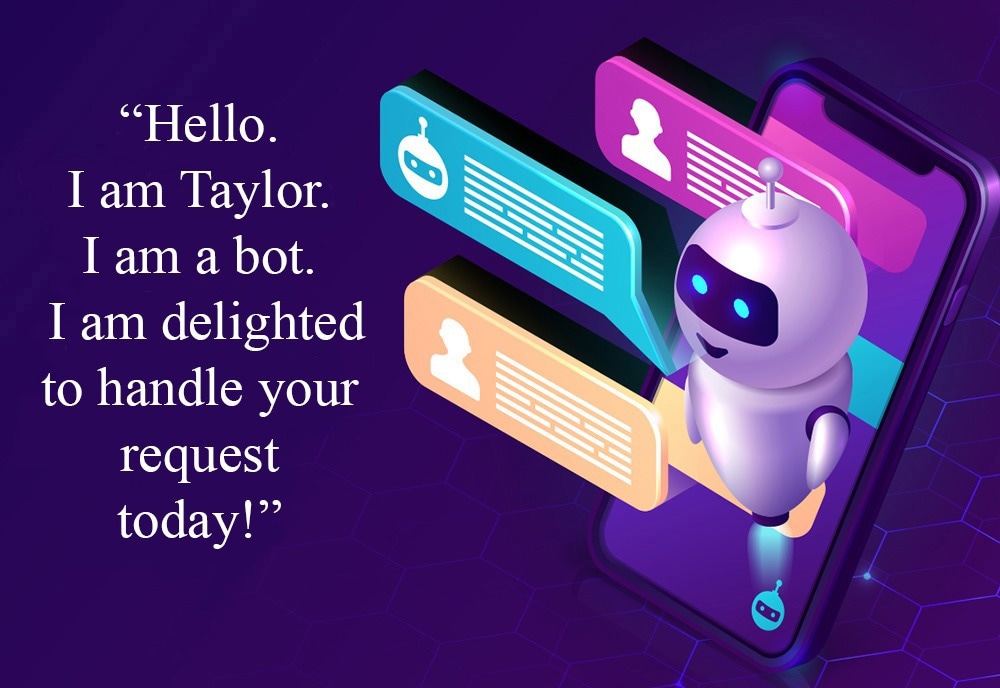A new study performed at the University of South Florida analyzes how emotion-expressing AI chatbots have the potential to impact customer service. This comes as online retailers make greater use of artificial intelligence chatbots to simplify customer service tasks and substitute their human counterparts.

Image Credit: University of South Florida
The study disclosed that AI chatbots display positive feelings—like adding an “I am excited to do so!” or a few exclamation marks—that do not essentially translate into positive reactions or add up to greater customer satisfaction.
The reason is that people do not expect chatbots to have feelings. People don’t react to chatbots the same way as they react to humans.
Denny Yin, Study Co-Author and Associate Professor, School of Information Systems and Management, Muma College of Business, University of South Florida
The article was published online on December 2nd, 2022, in the journal Information Systems Research, a premier journal included among the top 24 business journals collected by the University of Texas at Dallas.
The study is appropriate with the increase of emotional AI—the branch of AI that trades with processing and duplicating human emotions—and the recent claim from a Google engineer that an unpublished AI chatbot was “sentient.”
That claim and the consequent backlash led to the employee’s firing for breaking employment and data security policies. However, a national debate was already occurring about what “sentient” suggests and if Google’s chatbot has feelings or consciousness.
To bring real-world applications to the discussion, the study examined how customers feel and respond to positive emotions from an AI chatbot while being compared to a human customer service agent.
Denny Yin, study co-author and associate professor, stated that effective research is required in emotional AI technologies, since the industry is likely to increase to $100 billion by 2024 and $200 billion by 2026, as per market research from the Global Industry Reports and Data.
The scientists performed three experiments with the help of emotion-capable chatbots in a customer service scenario.
In the first test, participants communicated with either an AI or a human customer service agent to solve a hypothetical service problem. Nearly, half the participants talked with an agent where exclamation marks and positive adjectives were added to their responses, like “I am delighted to handle your request today!”
The group’s remainder chattered with an agent in the absence of any emotions, such as “I am handling your request today.” Participants rated the customer service quality and pleasure on a seven-point scale.
The experiments disclosed a few surprising findings:
- While positive emotions coming from a human are advantageous and increase customer satisfaction, similar emotions from an AI chatbot are not as efficient.
- The expectations of customers play a significant role, as customers do not expect an AI chatbot to be capable of feeling emotion. Excessive chatbot positivity could be a turn-off for consumers and lead to negative reactions.
To our knowledge, this research is the very first to explore the ramifications of equipping service AI agents with emotional expression capabilities.
Denny Yin, Study Co-Author and Associate Professor, School of Information Systems and Management, Muma College of Business, University of South Florida
Furthermore, the work extends the comprehension of customers’ reactions to emotional AIs as well as provides companies guidance on how and when retailers must utilize emotion-capable AI service agents.
Scientists warned that companies must understand the hopes of customers vulnerable to AI-powered services before randomly providing AIs with emotion-expressing abilities.
The other significant takeaways from the study include:
- Good feelings could distribute from a human agent’s positive emotional expressions to a customer, and the same has the potential to occur for an AI-powered chatbot. However, sometimes those good feelings are canceled out by a negative reaction to not expecting chatbots to display emotions.
- Expectations play a considerable role in whether an AI chatbot expressing positive emotions is a negative or positive experience. Various kinds of customers will respond to the same AI-expressed emotions in a different manner.
Servion Global Solutions anticipates that by 2025, AI will make up 95% of all customer interactions, such as live phone calls and online conversations.
Our work reveals the unique impact of expressed positive emotion by an AI agent on customers’ service evaluations along with the underlying mechanisms and a boundary condition, thus opening up exciting research opportunities in the area of human-AI interaction.
Denny Yin, Study Co-Author and Associate Professor, School of Information Systems and Management, Muma College of Business, University of South Florida
Scientists performed the experiments at the Muma College of Business at USF and at the Scheller College of Business at the Georgia Institute of Technology through in-person and online laboratory sessions from 2019 to 2020.
Apart from Yin, the co-authors of the article include Elizabeth Han, McGill University, and Han Zhang, Georgia Institute of Technology.
Bots with Feelings: Should AI Agents Express Positive Emotion in Customer Service?
Video Credit: University of South Florida
Journal Reference
Han, E., et al. (2022) Bots with Feelings: Should AI Agents Express Positive Emotion in Customer Service?. Information System Research. doi.org/10.1287/isre.2022.1179.